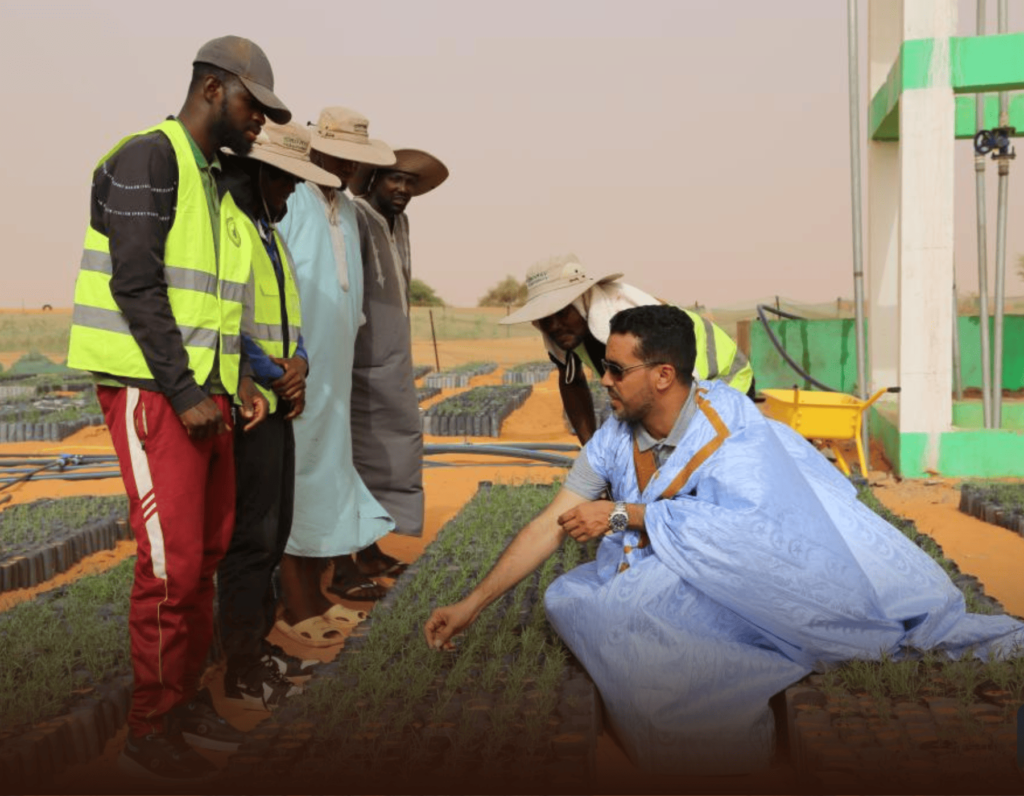In an effort to combat desertification and boost agricultural innovation in Africa, the China-Africa Green Technology Park in Bir El Barka, Mauritania, is yielding impressive results. Built in cooperation with the Xinjiang Institute of Ecology and Geography under the Chinese Academy of Sciences, this 4-hectare demonstration site is transforming parts of the Sahara into productive farmland, supporting the goals of the African Union’s Great Green Wall Initiative.
Equipped with advanced technologies such as solar-powered pumps, drip irrigation systems, and wind-sand control barriers, the park showcases how Chinese green technologies can be tailored to local climatic and soil conditions. The region, previously barren and vulnerable to desert encroachment, now supports the cultivation of carrots, mung beans, alfalfa, and other high-value crops.
Thanks to the support of Chinese experts and the application of Chinese desert control technologies, including smart irrigation, sand-fixing nylon mesh grids, photovoltaic-powered water pumping, sand-based planting, and soil improvement, the once barren landscape is slowly turning green.
Since its construction, the project has directly engaged local residents, 18 participated in building the park and at least six continue to work in roles such as irrigation, planting, and nursery management. It also functions as a training hub, transferring knowledge of dryland agriculture and ecological restoration to Mauritanian youth.
The Green Technology Park’s strategic location in Mauritania, currently serving as chair of the Great Green Wall Initiative also enhances its significance. It represents a model that could be replicated across the Sahel, from Senegal to Djibouti, aligning with Africa’s broader environmental and food security goals.
The project also stands as a testament to growing China-Africa cooperation in the fields of climate resilience, environmental science, and green development. Through initiatives like this, China is extending its Belt and Road vision into ecological domains, offering science-based solutions for shared challenges.
As the Sahel faces increasing threats from climate change, this collaborative venture offers hope and a practical blueprint for ecological restoration, food production, and socio-economic resilience.




